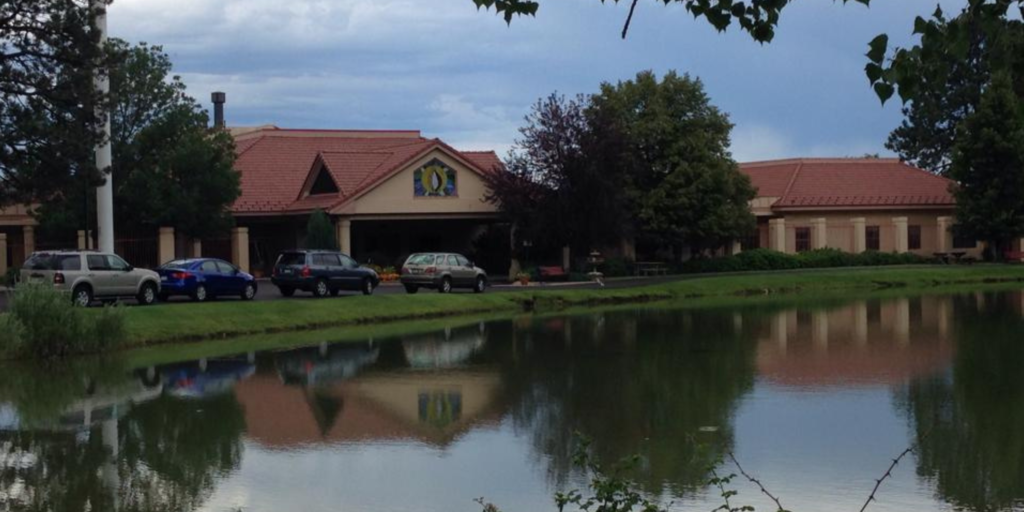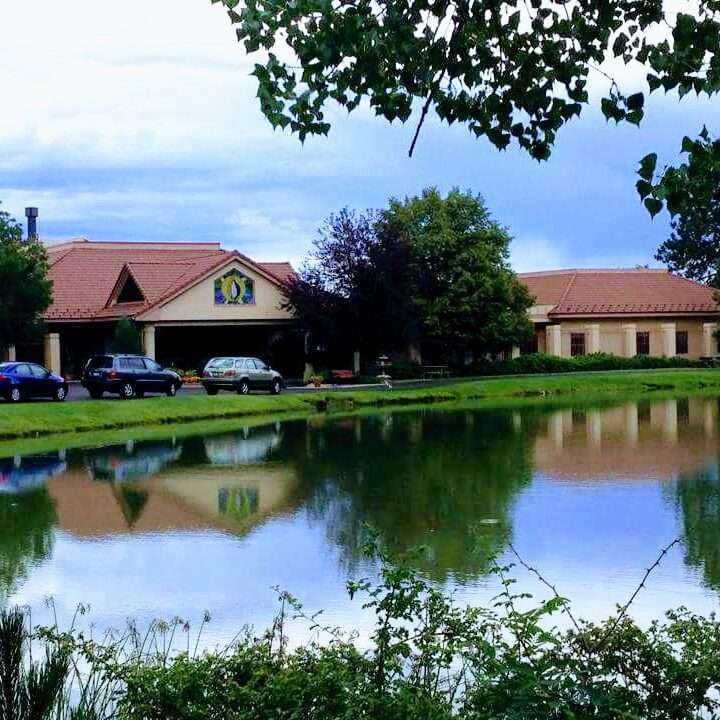When you are admitted to a hospital for inpatient care, you can often expect a social worker or case manager to meet with you to talk about discharge planning. They are there to help coordinate the care you need after your hospital stay.
One of the most common post hospital care options is a Skilled Nursing Facility level of care.
Not only have I been a hospital social worker who helped coordinate discharges to Skilled Nursing Facilities (SNF), but I have also worked as a social worker in a Skilled Nursing Facility (SNF).
Using my professional expertise, I’ll explain:
- What a Skilled Nursing Facility is
- The Average Length of Stay at a Skilled Nursing Facility
- How to Qualify for a Skilled Nursing Facility
- Health Insurance Coverage for Skilled Nursing Facility care
- The Difference Between Skilled Nursing Facilities and Nursing Homes/Long Term Care Facilities
What Is a Skilled Nursing Facility?
A skilled nursing facility is a considered a sub-acute level of rehab. Sub – acute is defined as the injury, illness or condition that is between urgent and chronic.
A Skilled Nursing Facility (SNF) provides an inpatient level of rehab care that is too intensive for outpatient rehab but not as intensive as an acute rehab hospital.
The goal is still to recover and get back to their prior level of functioning, so it’s not a permanent placement. However, a SNF allows for more flexibility for the patient to work on rehabilitation at a pace they are more comfortable with.
Skilled Nursing Facilities may be a stand-alone building only providing short-term rehab. Or they may be part of a continuing care retirement community (CCRC), where they offer long term care and skilled nursing care.
There are also hospitals that may have dedicated beds to provide skilled nursing facility level of care to patients. These are called “Swing Beds”. Swing Beds are usually found in more rural hospitals.
What Services do Skilled Nursing Facilities Provide?

SNF’s offer a broad range of services. Some may specialize in certain conditions like cardiac (heart), pulmonary (lung), strokes, wound care etc.
All Skilled Nursing Facilities are required by CMS (Centers for Medicare and Medicaid Services) to provide the following services:
- Skilled Nursing Care
- Physical Therapy (PT)
- Occupational Therapy (OT)
- Speech Therapy (ST)
- Medication management
- Physician oversight and care
- Medical supplies and equipment
- Transportation to and from appointments
- Registered Dietician
- A social worker or case manager to assist with psychosocial needs and discharge needs
SNFs are required to have Registered Nurses (RN) staffed at their facility to provide medication management, follow treatment orders and assess for medical needs.
They are also required to physicians that provide on-site medical oversight and care. SNFs have access to a Physician 24/7 for urgent needs and for prescribing medications for patients.
Physical therapy, Occupational therapy and Speech therapy work with patients at least 5 days a week. Some facilities may have the ability to offer more than 5 days a week of therapy services. Rehab therapy sessions can last up to 45 minutes at a time, depending on what a patient can tolerate.
SNFs should also have access to a Registered Dietician to provide dietary education for patients and families, and to asses dietary needs.
What is the Average Length of Stay at a Skilled Nursing Facility?
The average length of stay you can expect to have at a SNF is between 3-6 weeks.
patients need less time and some patients need more time. The great thing about SNF is that it can be more flexible with the length of stay than a Long Term Acute Care Hospital (LTAC) or an Acute Rehab Hospital (AR).
However, the length of stay can also be dictated by health insurance companies as well.
How to Qualify for a Skilled Nursing Facility

Original Medicare has specific criteria that has to be met in the hospital before someone can receive care at a SNF.
Medicare requires a patient to meet the “3 midnight rule” as a main qualifier for SNF level of care. If you have Original Medicare benefits (not a Medicare advantage plan), you have to be admitted to the hospital as an “inpatient” status for at least 3 midnights.
When you are admitted to the hospital, you may be admitted as an “observation” admission status or an “inpatient” admission status. For more details about what observation and inpatient admission status is, read the article: How Your Hospital Admission Status Affects How Much You Pay.
To find out which status you have admitted under at the hospital, you can ask the physician or a case manager/social worker.
If you were admitted to the hospital after coming directly from a SNF and your treatment team is recommending you to continue SNF care, you do not need another 3-midnight stay if it’s within 30 days of leaving the SNF.
If you have a Medicare Advantage plan, the 3-midnight rule is not required. This one of the benefits of having a Medicare Advantage plan over the Original Medicare plan.
In addition to the Medicare 3-Midnight Rule, a doctor must determine that you need SNF level of care and must write an order for it.
PT/OT/ST may make recommendations for SNF level of care, which helps support the doctor’s decision.
Health Insurance Coverage for Skilled Nursing Facility

If you have a private health insurance plan or a commercial insurance plan, authorization by your health insurance company is required to go to a SNF.
Different private and commercial health insurance companies may have different coverage options. So, it’s best to contact your health insurance company and find out how much of SNF level of care is covered.
Most people who go to SNF for short-term care have an Original Medicare or a Medicare Advantage Plan. Below are what each of these cover.
Does Original Medicare Cover a Skilled Nursing Facility?
Yes. Original Medicare Part A will cover a Skilled Nursing Facility (SNF) level of care.
Medicare pays:
- Days 1-20 at 100%
- Days 21-100 at 80%
- Days 100+ 0%
If someone requires care longer than 20 days, then Original Medicare will pay 80% of the cost for days 21-100. This leaves the patient responsible for 20% of the cost.
If you have a secondary insurance like a Medicare supplement plan, Tricare or Medicaid, the 20% that the patient is responsible for can be covered by the secondary insurance.
If you need care longer than 100 days, the full cost of care is now the responsibility for the patient to pay out of pocket.
Does a Medicare Advantage Plan Cover a Skilled Nursing Facility?
Yes. Medicare Advantage plans are required to follow the same guidelines as Original Medicare in terms of coverage. Medicare Advantage plans also cover 100% of the SNF cost for the first 20 days.
Days 21-100 at a SNF is then covered at 80% by the Medicare Advantage Plan.
The caveat is that the Medicare Advantage plan has to authorize you to receive a SNF level of care. They also have a list of approved SNFs that they will cover as in Network.
They also dictate how many days you can stay in the SNF based on your progress or lack of progress. So just keep this in mind if you have a Medicare Advantage plan.
Difference between Skilled Nursing and Long-Term Care or Nursing Home

Skilled Nursing Facilities (SNFs) are not the same as a nursing home/long-term care facility. Original Medicare, Medicare Advantage plans and private health insurance companies only cover short-term rehab stays.
SNFs provide short-term treatment and rehabilitation with the goal of being independent and returning home.
Nursing Homes, called Long-Term Care (LTC) facilities are a permanent senior living home that provides 24/7 nursing care. Some of the nursing care can be skilled nursing care. People who need LTC are no longer independent or no longer safe to live on their own.
Original Medicare, Medicare Advantage plans and private health insurance do NOT pay for nursing home or long-term care.
The 3 options people have to pay for nursing home care are:
- Out of Pocket
- Long Term Care Insurance
- Medicaid
Medicaid should not be confused with Medicare. Check out this post to learn about the differences between Medicare and Medicaid.
Conclusion
SNF level of care is a short-term rehab facility that allows people to receive medical care through skilled nursing and rehabilitation services at a slower pace.
Health insurance companies such as Original Medicare and Medicare Advantage plans are more likely to pay for a SNF level of care for someone who is too weak or too medically complex to discharge home.
However, each type of health insurance plan has their own criteria of how to qualify for SNF.
SNFs are not the same as Nursing Homes, though nursing homes can offer some of the same care options as a SNF.
Nursing homes are long-term senior living options, whereas SNFs are short-term treatment options with the intent of returning to their prior level of functioning. Health insurance only covers short-term treatment and will not cover nursing home care.


2 Responses
Reading this has been a real eye-opener on the differences between skilled Nursing Facilities and Nursing Homes and the difference in prices between them. You are so right getting old is very expensive. I’m lucky I live in the UK and there is so much more help here.
Thank you for reading! I would definitely be interested in learning the many ways the UK differs in senior care services and what programs are offered!